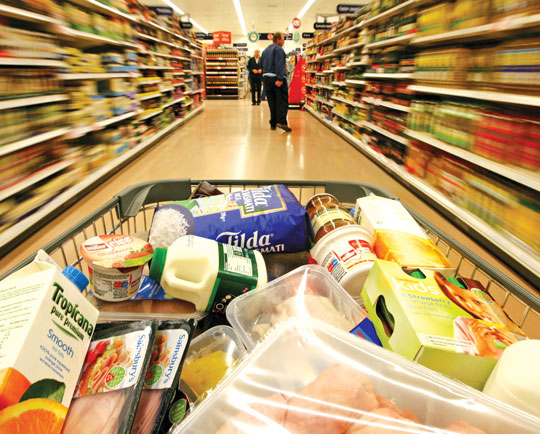Household Bills
Inflation up as food and transport costs rise

The consumer prices index (CPI) measure of inflation rose by 2.5% in the 12 months to June 2021, up from 2.1% in the 12 months to May.
On a monthly basis, CPI rose by 0.5% in June 2021, compared with a rise of 0.1% in June 2020. The inflation rate exceeded economists’ forecasts and passed the Bank of England’s stated target of 2%.
The consumer prices index including owner occupiers’ housing costs (CPIH) measure of inflation rose by 2.4% in the 12 months to June 2021.
Prices for food, second-hand cars, clothing and footwear, eating and drinking out, and motor fuel rose in 2021 but mostly fell in 2020, resulting in the largest upward contributions to the change in the CPI 12-month inflation rate between May and June 2021.
These were partially offset by a large downward contribution from games, toys and hobbies, where prices rose a year ago but fell this year.
Rachel Winter, associate investment director at Killik & Co, said: “Increased inflation in many instances remains a positive sign of much-needed economic growth. However, if inflation continues to creep away from the Bank of England’s 2% target, the central bank may be forced to act sooner than anticipated when it comes to raising interest rates.
“At the moment, rising inflation is thought to be a temporary blip caused by a variety of factors. One being the high oil price, which has resulted in increased prices for items such as petrol. Additionally, as ‘Freedom Day’ approaches, the hospitality industry has experienced a surge in demand as a result of the relaxation of coronavirus restrictions.”
Sarah Coles, personal finance analyst at Hargreaves Lansdown, said: “Higher inflation was the last thing that savers needed. The average easy access rate is now 0.06%, and the most competitive without restrictions is 0.5%. Even tying your money up for 12 months will earn you a maximum of 1.1%, which is less than half the rate of inflation.
“It means we need to hunt down the best possible rate, so our savings work as hard as possible. For any cash beyond our emergency savings of three to six months’ worth of essential expenses it’s worth considering tying it up for a better rate.
“Most people think it’s not worth bothering to switch, because rates are so low right now. It’s why the majority of our savings is still stuck in easy access accounts with the high street giants earning 0.01%. However, you can make 50 times the interest in the most competitive easy access accounts and you have to ask yourself what the alternative is. If you’re going to sit tight and wait for your bank to offer you more, you could be in for a hell of a wait, because the market expects the Bank of England to keep rates at 0.10% until 2023.”